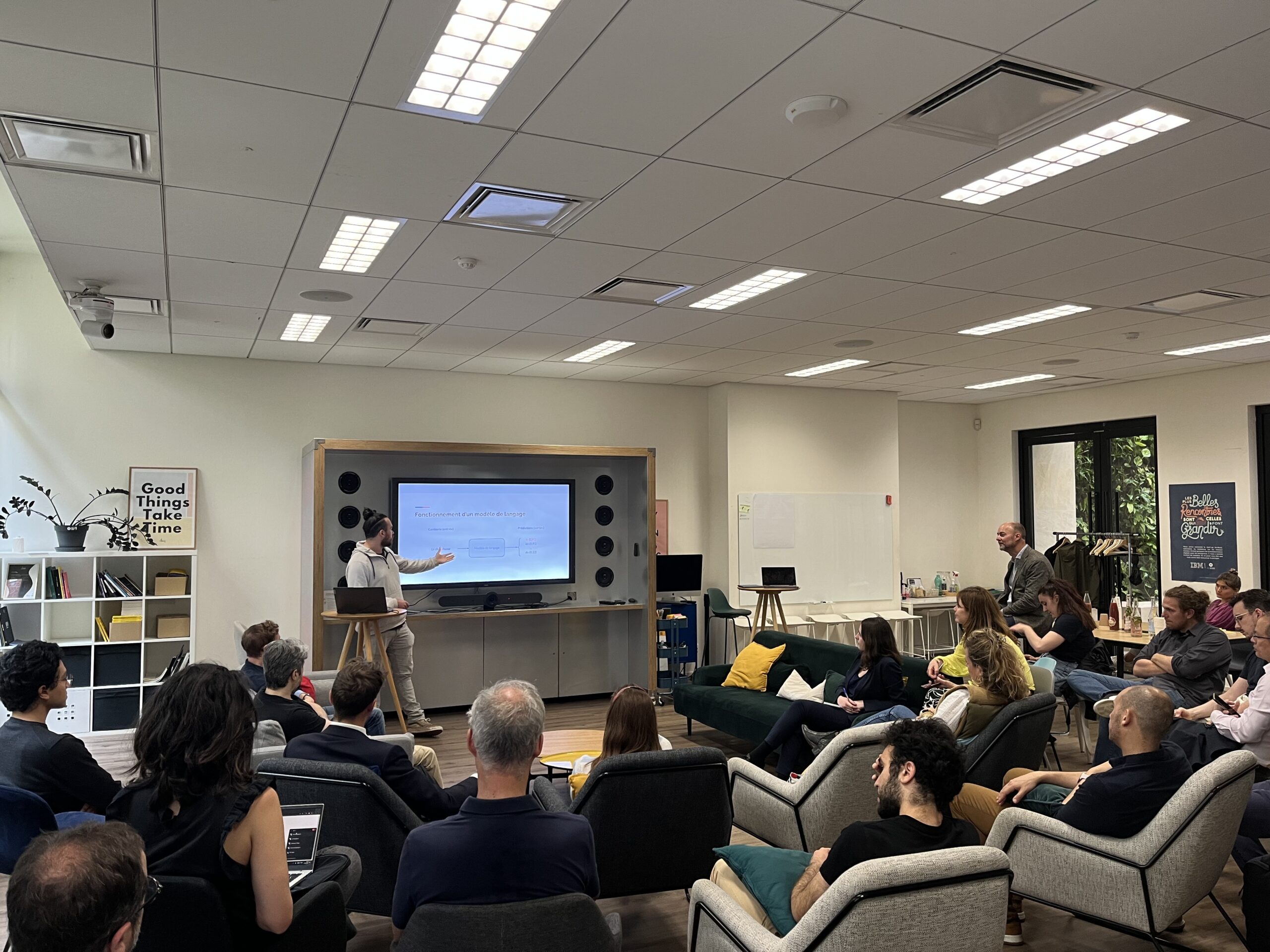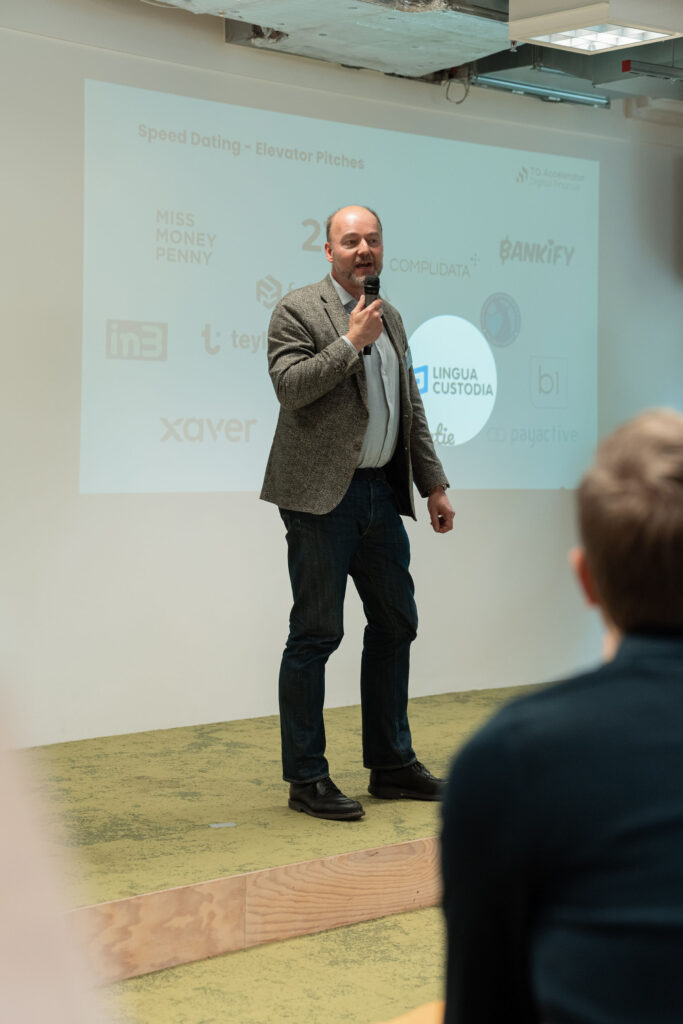Lingua Custodia was delighted to co-host this event with Cosmian, a company specialised in cybersecurity, at Le Village by CA Paris.
What are LLMs?
Gaëtan Caillaut’s presentation for Lingua Custodia focused on Large Language models (LLMs) and aimed to ‘demystify’ the engineering and science behind large language models. He highlighted LLMs are a type of AI program able to recognise and generate text. These models are trained on large sets of data, which allow the models to learn the probability of generating the next word, based on the context of the word or phrase.
What are the limitations of LLMs?
The limitations of LLMs were also discussed. The quality of the text which is generated is very dependent on the underlying data and there is also a risk that these models can misinterpret the context of the words or phrase. A LLM hallucination happens where the model generates text that is irrelevant or inconsistent with the input data.
LLMs are also very expensive to run and complicated to train.
Retrieval Augmented Generation and RLHF for finetuning
He highlighted the benefit of RAG (Retrieval Augmented Generation) which references an external knowledge base to improve the accuracy and reliability of LLMs. RAG helps to enhance LLM capabilities and has the advantage of not requiring particular training.
RLHF (Reinforcement Learning from Human Feedback) is one of most used finetuning approaches. It helps the model by using human feedback to ensure the model is more efficient, logical and helpful.
Lingua Custodia’s Generative AI Multi-Document Analyser
Olivier Debeugny, Lingua Custodia’s CEO then presented the multi-document data extraction technology which uses RAG to optimise the data extraction quality.
Please note that Lingua Custodia now has a new address in Paris, Le Village by CA Paris, at 55 Rue La Boétie, 75008. We are delighted with our new offices and thrilled to be part of this dynamic eco system which prioritises supporting startups and PMEs.


